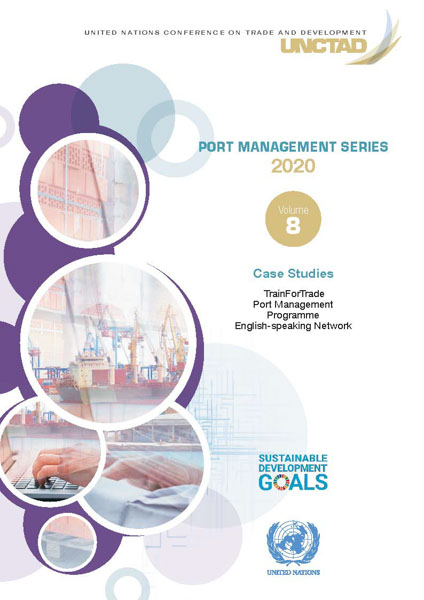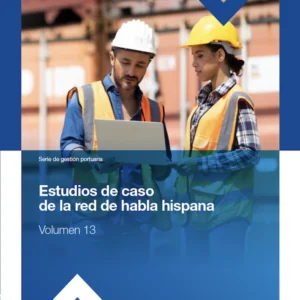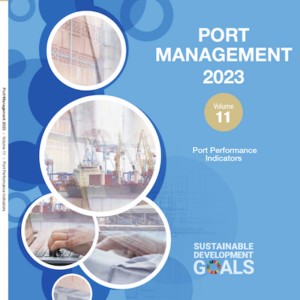Series la Gestión Portuaria, Volumen 8

This Volume – number 8 in the series – presents fifteen dissertations which have been judged to be the best from the recent cycles of the English-speaking Network.
Download PDF (UNCTAD/DTL/KDB/2020/2)
The participants involved come from ports in Ghana (cycle 4), Indonesia (cycle 4), Malaysia (cycle 1), Nigeria (cycle 2), and the Philippines (cycle 2).
This introductory chapter gives background information on UNCTAD and the PMP and explains the dissertation process. The following chapter includes a profile of each participant followed by a summary of their report and recommendations. The final section of each summary links the recommendations to directly relevant Sustainable Development Goals (SDGs) including their targets and indicators. Where possible, an update on any aspect of the report and recommendations that have been implemented concludes the summary.
The dissertation process is a professional tool encompassing research, report writing and presentation through which the author demonstrates his or her insights, knowledge, and abilities in an important aspect of their organization. The output is focused on a real business issue for the port and as such is a valuable resource and a significant contribution to their employer organizations. The dissertation is looked upon as a professionally produced business report for management to review and act on, where they see fit.
Collectively, the dissertations, which are held on a searchable database, provide a collection of case studies that make up a tremendous source of shared knowledge for members of the PMP Network.
The final chapter of the PMS volume 8 links the SDGs, which came about at the United Nations Conference on Sustainable Development in Rio de Janeiro in 2012, with recommendations for actions proposed by the participants. In many of the case studies it has been possible to identify specific targets and indicators used within ports to assess progress in meeting the aims of the SDGs. All the port communities represented in this publication take seriously their obligations in relation to contributing to improving environmental standards and facilitating economic development.





